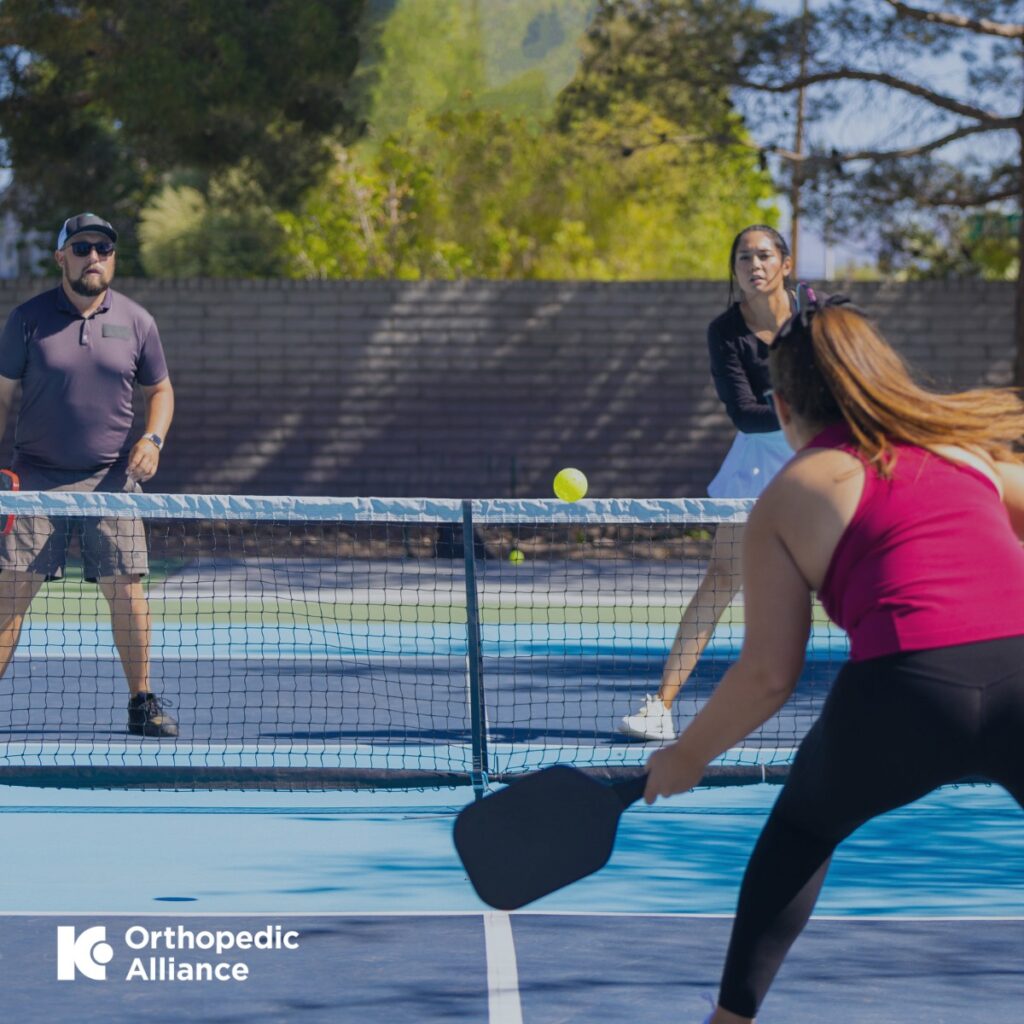
If you remember watching game five of the NBA finals in 2019, you may have seen Kevin Durant go down and grab the back of his right leg. He needed help to the sideline. He sustained a right achilles tendon rupture and needed surgery to fix it.
Although surgery is often the best achilles tendon rupture treatment in Kansas City, the idea of going under the knife can be scary, especially when it causes downtime and time away from sports. At Kansas City Orthopedic Alliance we believe that understanding achilles tendon injuries is the first step to reducing that fear.
Keep reading to learn more about the injury and the best treatment for an achilles tendon rupture.
What is an achilles tendon rupture?
An achilles tendon rupture usually occurs after a traumatic injury during sports. It may occur when someone is pushing off of their foot to start running or to go up for a jump. When you rupture your achilles tendon it usually feels like someone hit you in the back of the ankle. You may hear or feel a pop during the injury. After the injury you may still be able to walk, but you also may feel weakness with pain in the heel. On the other hand, you may have difficulty walking.
Risk factors for an achilles tendon rupture include:
- Taking fluoroquinolone antibiotics like ciprofloxacin
- Getting steroid injections
- Being a “weekend warrior” (people who only exercise or participate in sports on the weekend), which is most common in men between the ages of 30-40 years old.
How to examine an achilles tendon rupture

Before you plan on getting an achilles tendon rupture treatment in Kansas City, you will want to make sure you actually have a rupture. If you have a rupture, you will feel a palpable defect in the area. There may be swelling or bruising throughout the ankle. Also, when lying on the stomach, when the calf is squeezed, the foot will not move or will move less than the other foot. You can do this on your own and compare to your other side.
A specialist will typically assess the area via X-rays to make sure there are no broken bones, but an achilles tendon rupture cannot be diagnosed from an X-ray. Specialists may also perform ultrasounds and MRIs, but those tests are not necessary if a proper history and physical exam are performed.
Achilles tendon rupture treatment: The best option
An achilles tendon rupture treatment in Kansas City usually involves surgery and is best to do within the first four weeks following the injury. Surgery may be either open or percutaneous. The two ends of the achilles tendon are sewn together with a non-absorbable suture. Percutaneous repair has less risk of wound complications or infections, but a higher risk for sural nerve damage compared to open repair. In either case, the patient will be immobilized in a non-weightbearing cast with the foot pointed down for four weeks. After those four weeks, patients are placed into a walking boot for another four weeks and physical therapy is initiated. Patients usually complete about their months of physical therapy to work on their range of motion and strength.
Learn more with Kansas City Orthopedic Alliance
Our physicians are uniquely equipped to provide the best achilles tendon rupture treatment in Kansas City to get you back in the best shape. We’re committed to cutting-edge, comprehensive support for our patients, ensuring that they get the best treatment from start to finish.
To learn more, feel free to contact us or schedule an appointment today.


